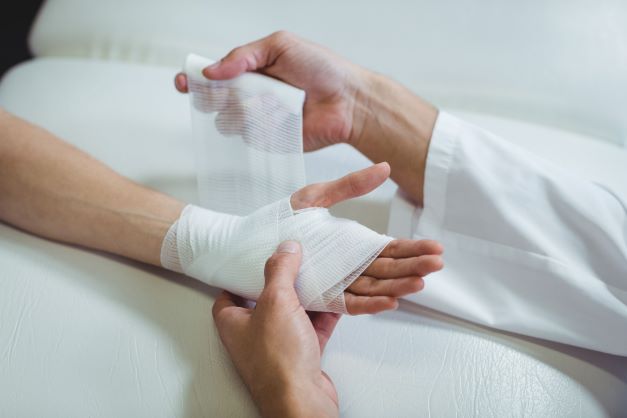
After a worker sustains injuries at work, the process of seeking compensation should start right away. Any delays mean the WICA insurance process will take longer to start. The employer may also miss the 10-day deadline to report to the Ministry of Manpower (MOM).
After a work injury, employees should report to the employer. MOM processes claims within six months, so the earlier you report the case, the better. You also need to go to the hospital to analyze the extent of the injuries. MOM will assign an insurer to assess the injury site.
WICA simplified the claims compensation process. However, injured employees have to make an effort to follow the proper procedure to ensure they don’t encounter hurdles in receiving compensation.
Seek Medical Treatment
After an accident at work, seek medical treatment. You can also inform your employer or supervisor concurrently. This way, you do not leave room for suspicion over where the accident occurred or the extent of injuries.
Your employer can then proceed to report the case to MOM. You should also provide supporting documents, as received in the hospital, to verify the extent of the injuries and the cost of treatment. Your employer will also seek medical leave wages compensation once your absentia from work is ascertained.
Your employer must compensate you if you are assigned light duties or sent on medical leave under the WICA Insurance Singapore.
Report To Your Employer
As mentioned above, the report to the employer is critical. This report is just as important as the medical report. Since the employer is expected to file a report with MOM within ten days, time is of the essence. Since the injuries will cost you money, time, and possibly your income, it is best to start the process early.
Make An Incident Report With MOM
Besides the work injury report your employer makes with MOM, you can follow it up with an incident report. This is one way to confirm that the employer filed a compensation claim and that the extent of injuries was captured correctly.
Temporary Incapacitation
If the employee is injured and is temporarily incapacitated, he should notify the employer and seek medical leave wages compensation. The employee should also ask for medical treatment associated with a work injury.
Permanent Incapacitation
Permanent incapacitation usually involves lump sum compensation because the employee may no longer be in a position to work because of the injury sustained in the work-related accident. Should this happen, the employee should;
- Report the accident to the employer.
- The employer reports the case to MOM.
- Get a medical assessment to ascertain the degree of incapacitation and the impact on your ability to work again.
- The employer should then submit claim application forms.
- MOM issues a notice of assessment (NOA) or notice of computation (NOC)
As you await the lump sum compensation, the employer should keep paying medical expenses and medical leave wages.
Employees are still entitled to permanent incapacitation claims even after their contract or work pass is suspended. If you have a work permit, you can seek help from MOM if your employer takes too long to process your claim or fails to pay the claims under WICA.
If the compensation amount is too low, and you wish to try your luck with a civil suit, you can withdraw your claim either before MOM issues an NOA or within four weeks after the issuance of the NOA.